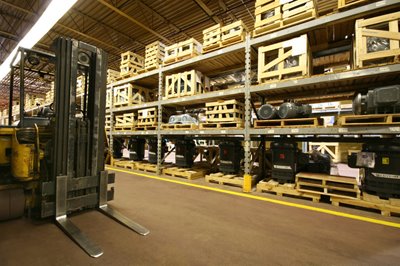The Differences Between Total Pallet Management And Pallet Audits
In the realm of supply chain optimization, effective pallet management is a critical component that directly influences operational efficiency and cost-effectiveness. Two distinct approaches that play key roles in pallet management are Total Pallet Management (TPM) and Pallet Audits. This blog under the heading “Navigating Pallet Management: Understanding the Differences Between Total Pallet Management and Pallet Audits” delves into the nuances of these methodologies, shedding light on their unique characteristics and the value they bring to businesses seeking to streamline their pallet-related processes.
Also Read: Preserving Durability: Tips To Help You Maintain The Longevity Of Your Wood Pallets
Total Pallet Management (TPM): Total Pallet Management is a holistic and comprehensive approach to pallet management that goes beyond simple tracking or auditing. TPM involves outsourcing the entire pallet management process to a specialized service provider, such as Chesapeake Pallets, USA. Under TPM, the service provider assumes responsibility for the complete life cycle of pallets, from procurement and storage to repair, recycling, and disposal. This approach offers businesses a turnkey solution, allowing them to focus on their core operations while the pallet management service handles all aspects related to pallets. TPM is characterized by its proactive nature, aiming not only to address issues as they arise but also to prevent them through strategic planning and ongoing management.
Pallet Audits: On the other hand, Pallet Audits represent a more targeted and specific aspect of pallet management. Pallet Audits involve periodic assessments and evaluations of an organization’s existing pallet inventory. These assessments aim to identify discrepancies, inefficiencies, and opportunities for improvement within the pallet management process. Pallet Audits typically focus on aspects such as pallet condition, tracking accuracy, and adherence to industry standards. The primary goal is to pinpoint areas that require attention and implement corrective measures. Unlike TPM, which encompasses end-to-end management, Pallet Audits are reactive and conducted at intervals to ensure ongoing operational alignment.
Key Differences:
- Scope and Responsibility:
- TPM: Encompasses end-to-end responsibility for pallet management, including procurement, storage, repair, recycling, and disposal. The service provider takes on the entire process, offering a comprehensive solution.
- Pallet Audits: Focuses on specific aspects of the pallet management process, conducting periodic assessments to identify and address issues. The responsibility lies with the organization to implement corrective measures.
- Proactivity vs. Reactivity:
- TPM: Proactive in nature, TPM involves strategic planning and ongoing management to prevent issues before they arise. It is a continuous, forward-thinking approach to pallet management.
- Pallet Audits: Reactive, as audits are conducted at intervals to identify and address existing issues. The focus is on rectifying discrepancies and improving specific aspects of the current pallet management process.
- Comprehensive vs. Targeted:
- TPM: Offers a comprehensive solution that covers all aspects of pallet management. It is an all-encompassing strategy designed to optimize the entire pallet life cycle.
- Pallet Audits: Targeted assessments that zoom in on specific elements, such as pallet condition, tracking accuracy, and compliance with industry standards. It provides a more granular view of particular aspects of pallet management.
- Strategic Outsourcing vs. Internal Evaluation:
- TPM: Involves outsourcing pallet management to a specialized service provider. Businesses partner with external experts to handle the complexities of pallet management.
- Pallet Audits: Conducted internally or with the assistance of external auditors, focusing on evaluating and improving existing pallet management practices within the organization.
Choosing the Right Approach: The choice between Total Pallet Management and Pallet Audits depends on the specific needs and goals of an organization. Businesses seeking a comprehensive, outsourced solution that optimizes the entire pallet life cycle may find TPM to be the ideal choice. On the other hand, organizations looking for periodic evaluations and improvements in specific areas of their existing pallet management process may opt for Pallet Audits.
In conclusion, both Total Pallet Management and Pallet Audits play pivotal roles in enhancing pallet-related processes within the supply chain. Understanding their differences enables businesses to make informed decisions based on their unique requirements, aligning their pallet management strategy with broader operational objectives. Whether outsourcing the entire pallet management process or conducting targeted audits, businesses can leverage these approaches to drive efficiency, reduce costs, and ensure the seamless flow of goods in their supply chains.






